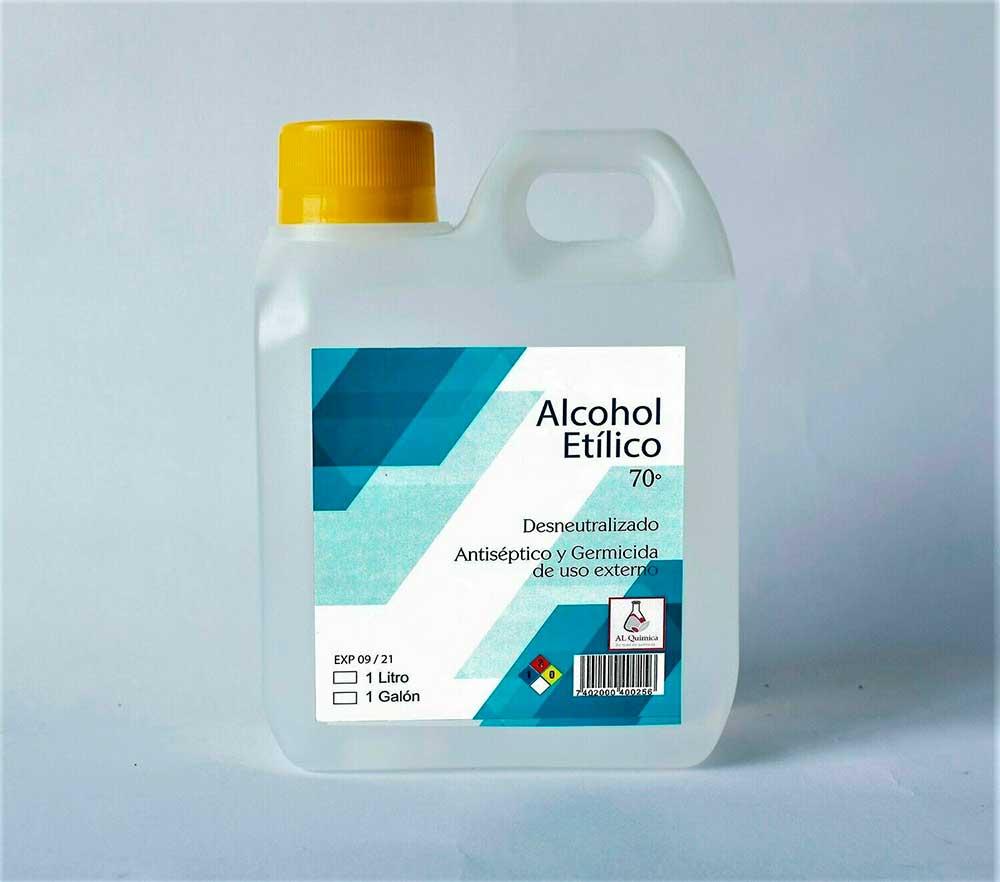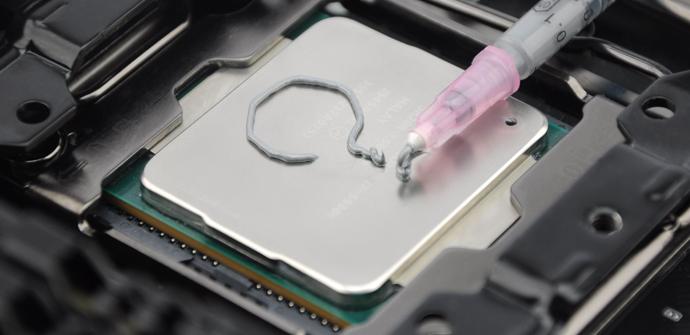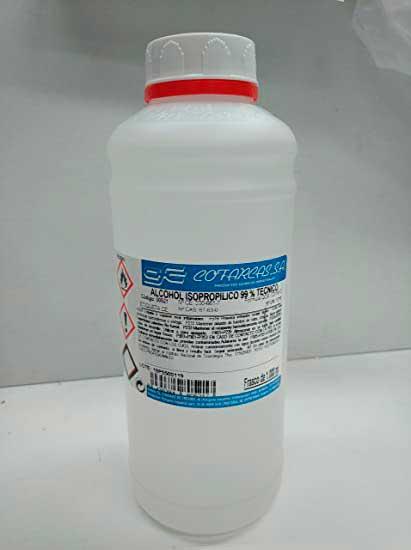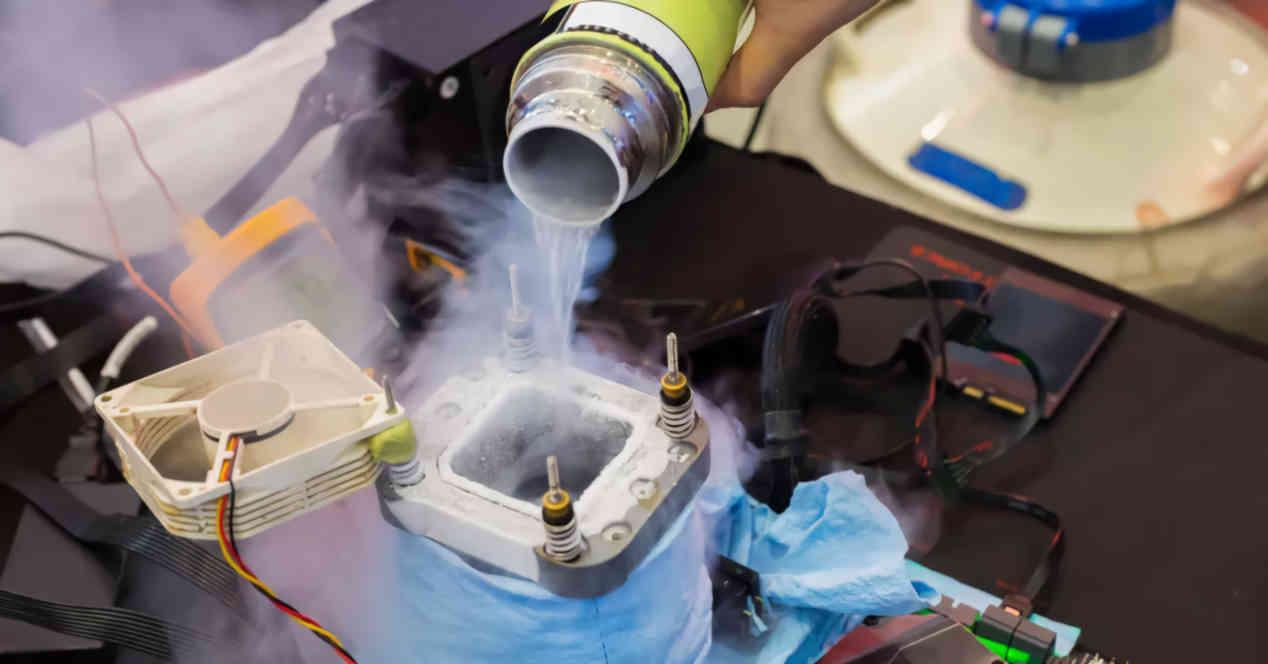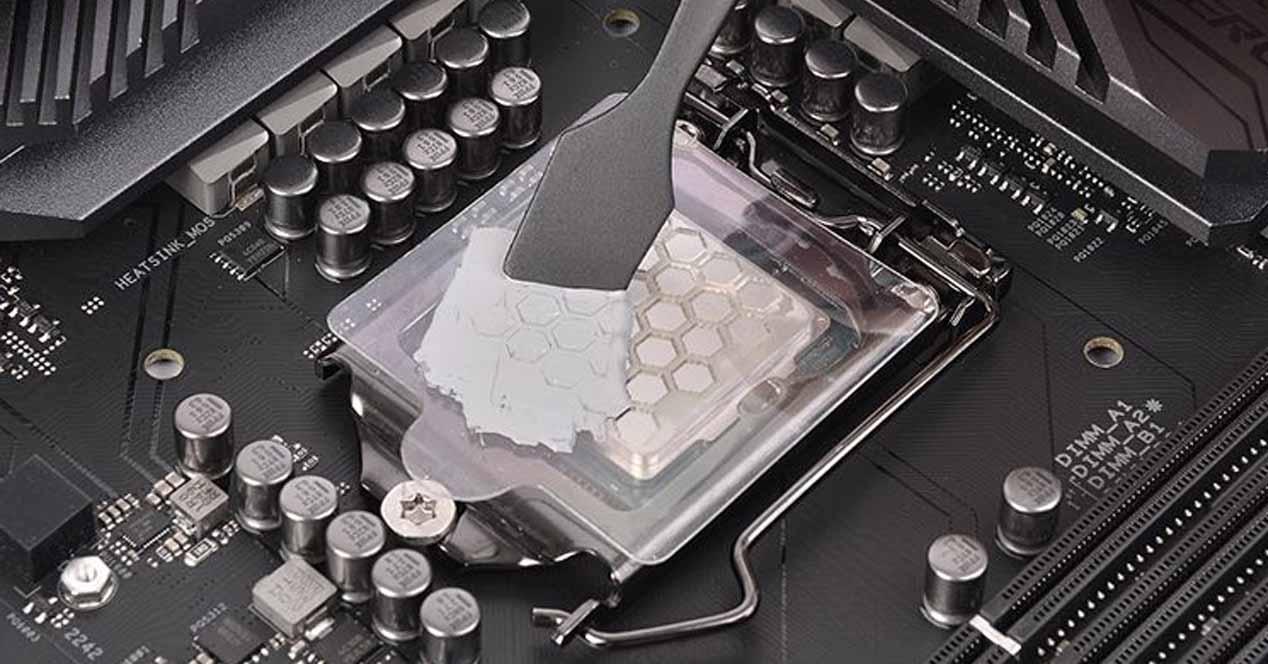
It always comes back, it is always asked, there is always doubt because it is inherent to the human being and the truth is that the information is scarce, the opinions are very varied and the real reasons hardly arise. The question is therefore simple: is 96º pharmacy alcohol good for cleaning thermal paste?
Alcohol, worse than it seems and the most used
As we surely know there are hundreds of types of alcohols, but the most normal or common are precisely those that we usually have on hand. These are the pharmacy ones, also called 96º or if we are really precise we speak of 96º ethyl alcohol if we are pharmacists. So everything really turns on whether to use this type of alcohol or lower.
From the outset we are going to totally rule out alcohols that are lower than 96º for the same reasons and more that we are going to explain below. As we assume, ethyl alcohol has a molecular composition CtwoH6OR, with a mass of 46.07 g / mol, an average density at 20 ° C of 0.797 g / cm3, a boiling point of 79 ° C and a flash point of between 19 to 20 ° C.
Seeing its characteristics and knowing that its evaporation is very fast, why not use it? It is understandable, but the problem is that this idea is totally wrong and the reasons are very broad. In the first place, there is 4% of the material that is obviously not ethyl alcohol and on the other hand, this remaining 96% is not at all effective to clean the thermal paste due to its composition and density.
Depending on the chosen thermal paste, we can find metals such as zync, aluminum, silver, diamond and an endless number of components that, when mixed, give from the density to the compression of the paste. If we want to remove the thermal paste correctly, we need a compound or several that dissolve these metals, or at least the components that hold them together.
Obviously, there have been specific products for this task for years, such as ArctiClean, which uses solvents based on citrus fruits (mainly lemon and others in a specific chemical mixture) together with soybeans. On the other hand, ethyl alcohol and even isopropyl do not dissolve anything, no thermal paste or heating pad, they simply allow them to be removed with a little more easily by wiping them.
But the goal is not really that, far from it, the goal is to dissolve the paste and be able to remove as much of it from the surfaces, be it on the IHS, on the die or on the block / heatsink.
Why is it not good to use alcohol on surfaces with thermal paste?
The main problem in terms of heat with alcohols is that precisely that, that thermal pastes do not dissolve, ergo if a paste is specifically designed to fill micropores and imperfections, not dissolving it in microscopic terms is the same as not removing it correctly.
This is important, since most of the specific products for this task add an extra plus such as a perfect cleaning and also protection against metal corrosion (not all, but it is the most normal). An alcohol does not produce this, but it does not make it worse as such, it will not oxygenate the metal or corrode it, but we run other risks that are the same or worse if possible.
The problem here is that although ethyl alcohol does not seem harmful, it must be borne in mind that that 4% or more corresponds to the so-called denatured components, and that is quite a significant problem in PC. The components of these alcohols vary by pharmaceutical company or company, but as a rule they usually contain wood naphtha (or a substitute) pyridine and hard petroleum-derived naphtha minerals, apart from denatonium benzoate.
These copper, aluminum or nickel components only prevent proper heat transfer between IHS and block / heatsink, worsening thermal performance in some cases to some degree. Although everything really revolves around the fact that this type of components called methylated alcohols cannot touch the electronics of our PC, nowhere.
If we do, we expose ourselves to irreparable damage, since normally the amount of alcohol is more than is necessary to clean, it adheres to the components, penetrates them or through their connections and leaves the residues there, where we are least interested.
It will not be the first or the last component to have a short circuit despite believing that everything was safe, so the use of this type of 96º ethyl alcohol is totally discouraged and as we say, it can be dangerous.
What about isopropyl alcohol?
Here we enter a much kinder field, since as a rule isopropyl alcohol is formulated with 99% or more of pure alcohol and where the carbon of the group is attached to two other carbons. If its purity is very high, we will be talking about 99.9%, which is totally suitable for cleaning our CPU and our GPU.
However, we will not obtain the benefits mentioned above, because although it is safe as a compound, this does not mean that it really does a good job at the molecular and microscopic level.
Isopropyl alcohol also does not dissolve thermal paste and even if we are trying to remove a TIM from liquid metal, what it can do with depending on which pastes is a kind of oxidation process with a third metal, such as nickel.
Although these types of alcohols are really cheap and fairly easy to get, for example on Amazon, at the price that specific products are at and how long they last, they are not really worth it. To keep the example, the ArticClean is right now just over 10 euros and with free shipping:
Is it worth opting for this type of product to use alcohols? Of course, the advantages are more than known, they are products with almost two decades on the market, time is saved and better results are achieved and above all, they are 100% safe.
